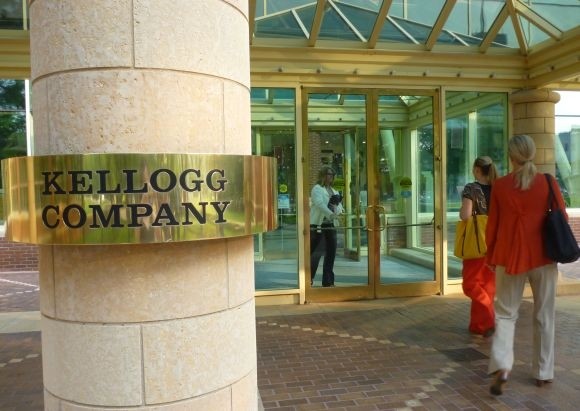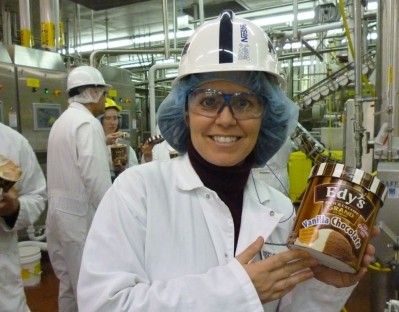Kellogg: The Global Food Protection Institute
Next we move to Kellogg, which invited us to its HQ to talk about the Global Food Protection Institute - set up in 2009 with seed money from the W.K. Kellogg Foundation - but alas did not give us a tour of its manufacturing facilities or spill the beans about how new products Breakfast 2 Go and Nurish are performing...

So what does the GFPI do?
Three things, says CEO Dr Julia Bradsher.
#1: Improve training for food safety professionals, from FDA inspectors to government officials and food safety experts from China, Turkey, Saudi Arabia and Ukraine as well as private food manufacturers in the US by delivering standards-based training through the International Food Protection Training Institute
Initially, all training was delivered at Battle Creek, but today it is increasingly being deployed where it is needed by a network of experts across the nation, she says.
A key focus right now is helping industry understand the requirements of the Food Safety Modernization Act (FSMA), she adds.
#2: Advance novel food protection technologies by investing modest sums into firms with emerging technologies in food safety, particular companies developing portable, user-friendly methods that can be used to prepare samples in the field, identify microbes that are present in low cell counts and detect several contaminants at a time.
Recently, GFPI provided financial support for two start ups: nanoRETE, a Michigan-based company developing tools for real-time detection of pathogens using customized nanoparticle biosensors; and Seattle Sensors, which utilizes surface plasmon resonance (SPR) technology in a portable device that can be used to monitor the factory environment for hazards and customized to detect pathogens, allergens, and toxins.
#3: Raise awareness via symposia. The GFPI has convened a series of conferences and workshops on food safety issues in the past couple of years.
Click here for full details of upcoming events.
Click here to read more about the training that the GFPI provides.


























